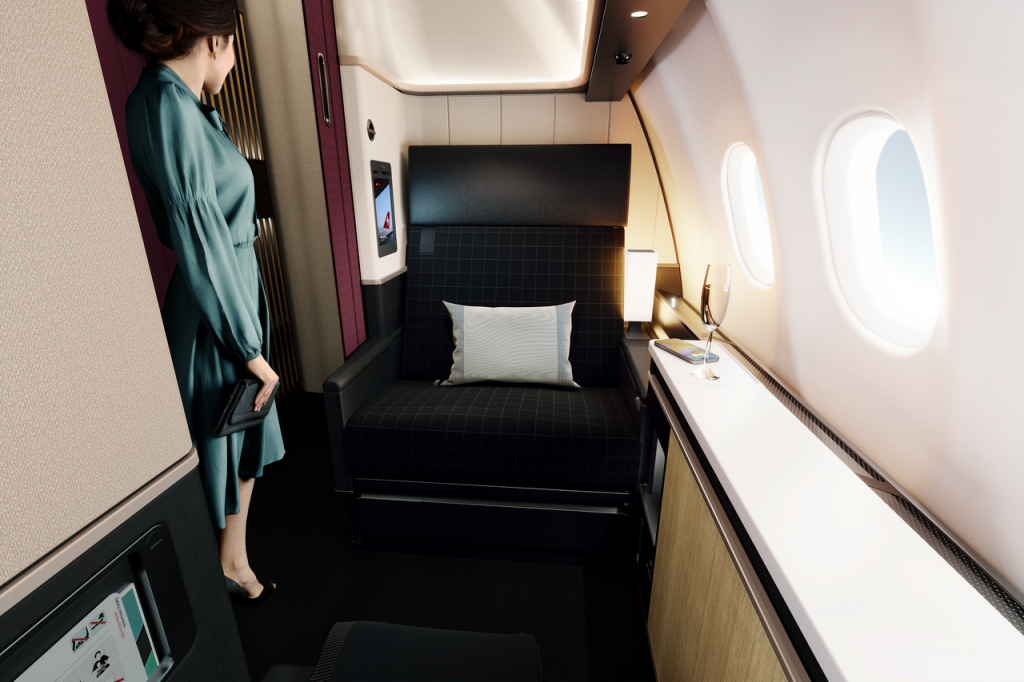Swiss International Air Lines is facing a unique challenge as it plans to install new first and business class seats that are too heavy, causing a potential weight and balance problem on some of its planes. The location of these heavier seats towards the front of the aircraft is creating a ‘nose-heavy’ situation, particularly on its Airbus A330-300 fleet. In response, Swiss is planning to install a metal ‘balancing plate’ towards the rear of the aircraft to address the weight distribution issue.
The decision to add weight to the planes comes as a result of the trend towards heavier premium seats in the airline industry, driven by a desire for more luxury and amenities. Swiss, known for its high-end products and service, recognizes the need to modernize its cabin interiors to meet customer expectations. While speed is a priority for the airline in implementing these changes, the balancing plate option is considered a temporary solution until other options for balancing the weight on the planes can be developed.
Swiss acknowledges that there are alternative ways to address the weight distribution issue, such as scrapping first class altogether, adjusting cargo capacity, or adding more economy seats. However, these options were not considered high priorities for the airline, which aims to maintain its unique selling proposition of offering first class on all its long-haul flights. Other subtle tweaks, such as reducing the number of first class seats and omitting sliding doors on business class seats, have also been made to reduce overall weight.
The challenge Swiss is facing in balancing weight distribution on its planes reflects a broader trend in the airline industry towards sustainability and environmental responsibility. The decision to fly extra metal around the world for the comfort of first-class passengers raises questions about the trade-off between customer satisfaction, profitability, and environmental impact. Despite these challenges, Swiss is committed to refining its air travel product while balancing customer expectations, profitability, and sustainability considerations.
The airline sector stocks within the ST200 index, which includes publicly traded companies across global markets, have been impacted by various factors including the ongoing effects of the pandemic and changing consumer behaviors. The index tracks the financial performance of nearly 200 travel companies, providing insights into the overall health of the airline industry. As airlines continue to navigate challenges and uncertainties, their performance will remain a key indicator of the sector’s recovery and resilience in the post-pandemic world.


